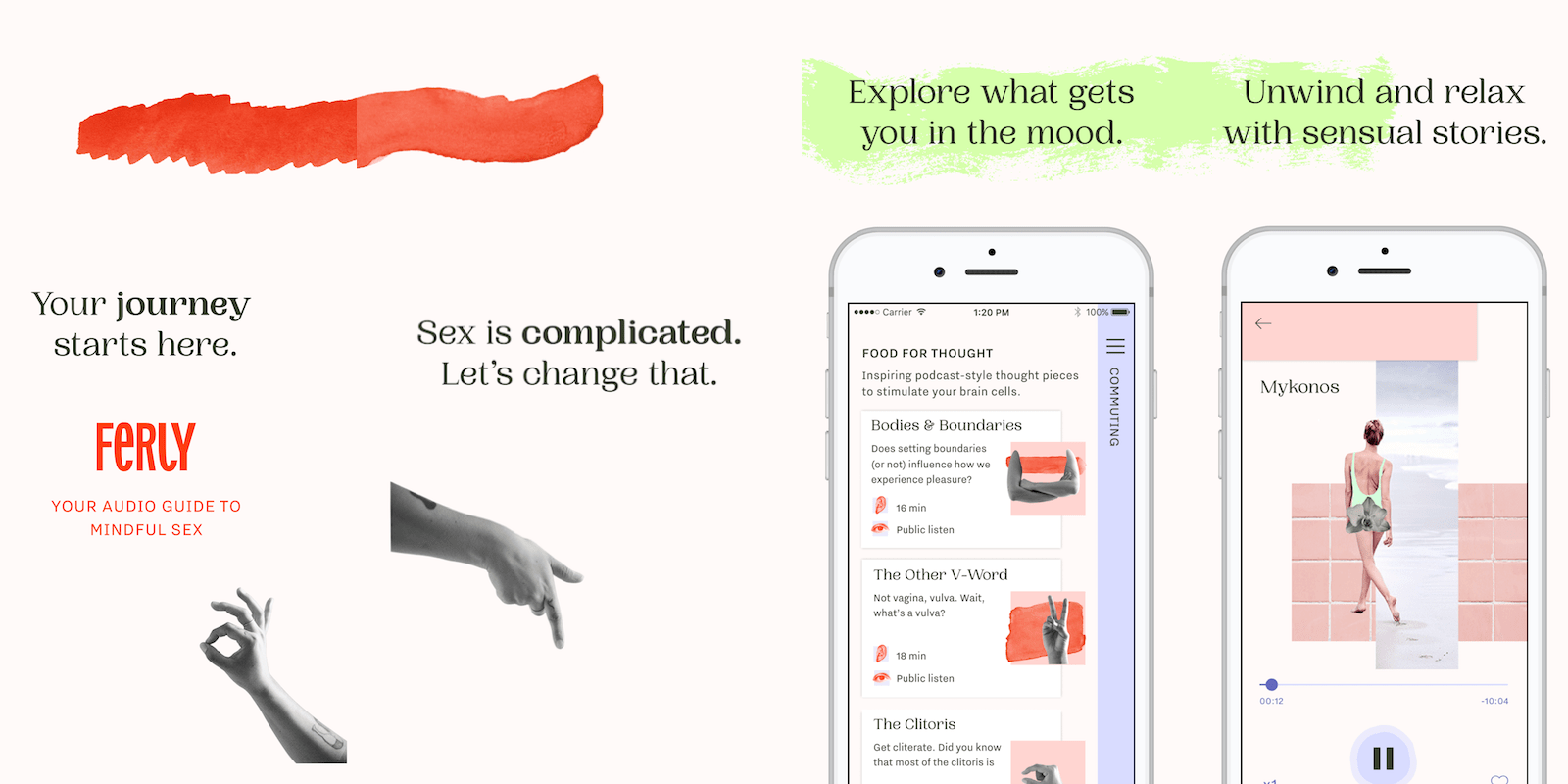‘Sexual wellbeing studio’ Ferly launches on iOS

Ferly, an app that describes itself as a sexual wellbeing studio, is available for download from the App Store, as of today. The free app is a digital space for women, which hosts audio content that unpacks the science of sex, guided practices that encourage exploration of the body and mind, and a space to journal and community features.
The name Ferly comes from an old English word that means “strange and wondrous”. It was historically used to describe mythical creatures, “a beautiful analogy to female sexuality, especially female pleasure” co-founder Billie Quinlan told SEXTECHGUIDE.
We spoke to Billie back November 2018, about the initial development of the app, previously described as a ‘sensual Headspace’, called Leika.
What changed?
“Our mission hasn’t changed, nor has the premise of the business. Its always been our goal to empower womxn to own an active role in their health, pleasure and overall wellbeing. We truly believe that womxn becoming experts of their minds and bodies is fundamental in creating an empathetic, equitable and free world.”
Womxn: “women and those affected by misogyny, or women-related issues.” (Inclusive of transfolk and women of color)
Ebony Miranda, New York Times
The name of the app also changed, to avoid any potential confusion with the well-established camera brand Leika. Quinlan also says that initial user feedback suggested people found it difficult to pronounce.
Circumvent Big Tech's Censorship! Never miss another post!
Subscribe to our notifications!
Article continues below
As part of the refinement process, Ferly went through two early version of the app, and is currently free to access – though that will change in the future. No pricing details have been set yet, for once this period is over.

“Throughout our whole journey with Ferly, from the first time we had the idea until now, the conversations we have with womxn normally centre around the question ‘am I normal’,” Quinlan explains.
“Of course there is no ‘normal’ but society has crafted a very clever narrative around sex and female pleasure that tells one story. This is so unhelpful to all of us that fall outside of that (which by the way is most of us because it’s a false narrative) and it creates feelings of shame toward our needs and desires. So we don’t speak up, we don’t freely express ourselves and mostly we de-prioritize our pleasure.”
Read Next: How to have a meaningful conversation about sex in one easy chart






